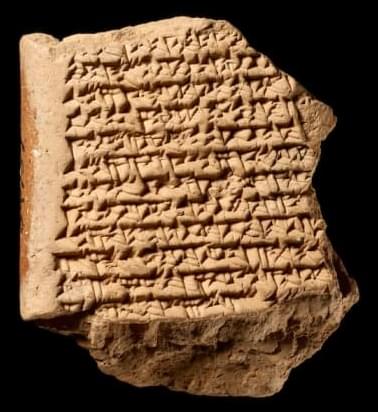Most ancient astronomers have used tables and graphs that describe celestial bodies’ relative positions, depending on the time of year. The idea of describing the motion of planets in the form of a geometric line with the area under the curve equal to the distance traveled by a celestial body is truly innovative. This is essentially an idea that led to integral calculus.
The researcher of the five tablets knew that four of them involved astronomical calculations, but he wasn’t sure until he got a picture of the fifth. After reading them, it became clear that they contained instructions for predicting the motion of Jupiter using the geometric principle by constructing a trapezoidal figure. The finished “product” of their studies is what we now call the Babylonian Map of Jupiter.
The inscriptions on the five tablets show that the Babylonian astronomers measured the estimated daily speed of Jupiter, taking into account the position of the planet on different days. They then used speed and time to calculate the distance they would travel over a period of time, i.e., their calculations are equivalent to the geometric dependence of velocity on time and distance.
